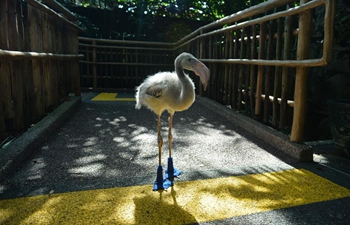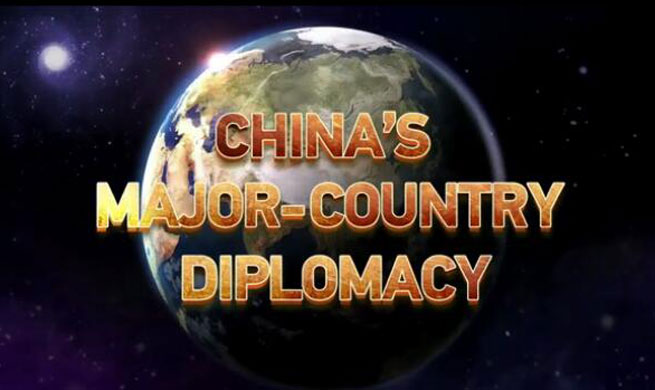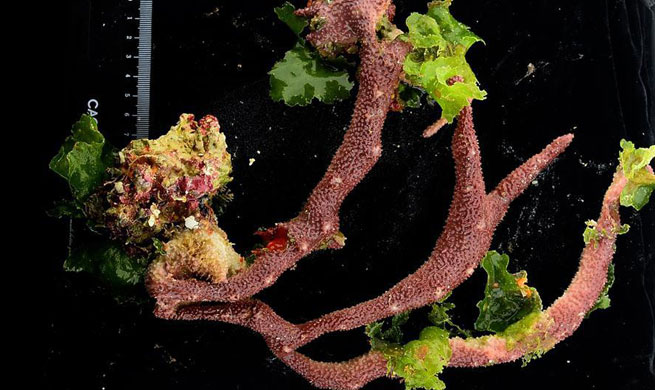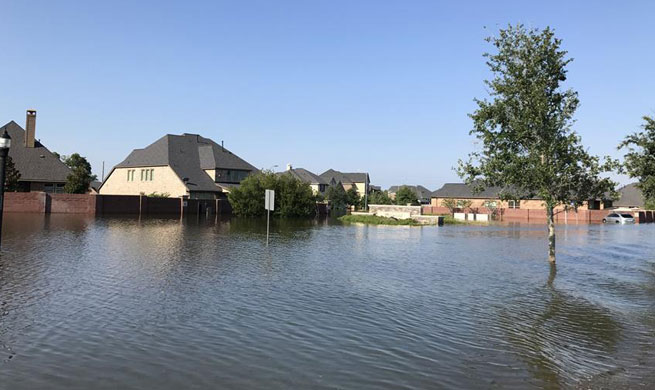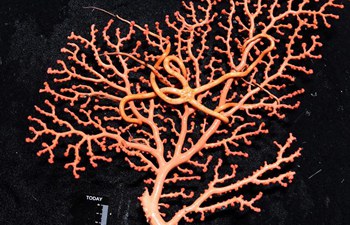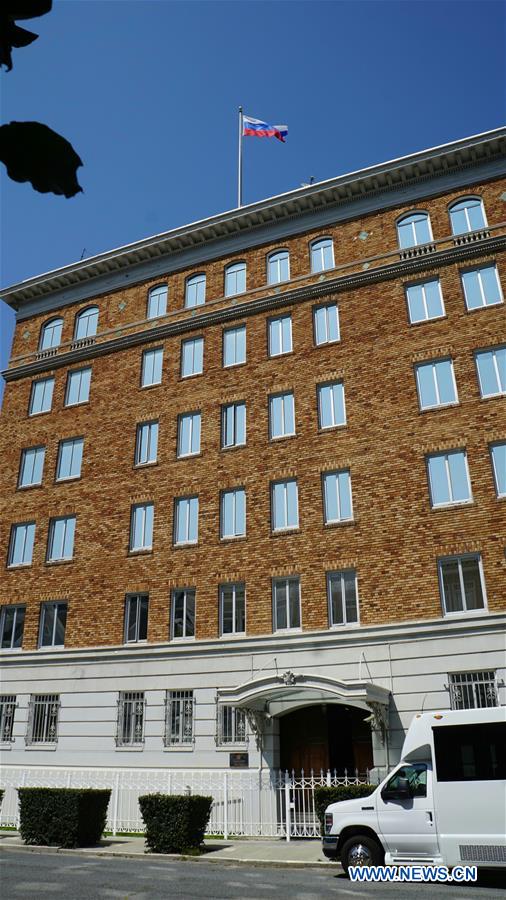
Photo taken on Aug. 31, 2017 shows the Russia's Consulate General in San Francisco. The United States has ordered Russia to close its consulate in San Francisco, the U.S. State Department said Thursday, in response to Moscow's demand that the size of U.S. diplomatic staff in Russia be reduced. Russia's Consulate General in San Francisco issued a statement Thursday to denounce the U.S. State Department order earlier in the day to close it down. (Xinhua/Xu Yong)
WASHINGTON, Aug. 31 (Xinhua) -- U.S. President Donald Trump's administration on Thursday ordered Russia to close three diplomatic facilities in the United States as the diplomatic spat between Washington and Moscow continue to escalate.
According to State Department spokesperson Heather Nauert, the United States required Russia to close its Consulate General in San Francisco, a chancery annex in Washington, D.C., and a consular annex in New York City by the upcoming Saturday.
In a statement, Nauert said the State Department had complied with Russia's demand to reduce the size of U.S. diplomatic mission in Russia and now made its own demand "in the spirit of parity invoked by the Russians."
"With this action both countries will remain with three consulates each," said Nauert.
Nauert also noted the United States was allowing Russia to maintain additional annexes "in an effort to arrest the downward spiral in our relationship."
The Russian Consulate in San Francisco said in an online statement that the decision to close the Consulate General of Russian Federation in San Francisco was "another unfriendly step of the U.S. authorities."
On a conference call with reporters on Thursday, a senior Trump administration official said U.S. Secretary of State Rex Tillerson informed his Russian counterpart, Sergey Lavrov, of the U.S. decisions during a phone call earlier in the day.
Tillerson and Lavrov also agreed to a meeting in September, according to the official.
Both Nauert and the official having the conference call with reporters stressed that the United States was responding to the Russian "desire for parity" in the diplomatic relationship.
"And it is our hope that the Russians will recognize that since they were the ones who started the discussion on parity and we're responding and complying with what they required of us," said the official.
The Russian Foreign Ministry on Thursday dismissed U.S. claim that the escalation was initiated by Russia, saying that Moscow will "carefully study" the new measures announced by the Americans before announcing their reaction.
The tit-for-tat action came after Russian President Vladimir Putin in July ordered the United States to reduce the number of diplomatic personnel in Russia by 755, in response to U.S. sanctions on Russia over its alleged intervention in the 2016 U.S. presidential election.
The diplomatic row also came at a low point of bilateral relationship between Washington and Moscow, as the two sides hold differences on a range of issues, including the war in Syria, and the conflict in Ukraine.
However, Putin's move was not the origin of this round of diplomatic row between Russian and the United States and rather a delayed response to former U.S. President Barack Obama's expulsion of 35 Russian diplomats and seizure of two Russian diplomatic facilities last year out of alleged Russian meddling in the U.S. election.
Meanwhile, White House press secretary Sarah Huckabee Sanders told reporters on Thursday that the decision to close the Russian diplomatic facilities was made by Trump.
However, Sanders insisted that the White House wanted to "halt the downward spiral" between the two countries.
"We're going to look for opportunities to do that, but we're also going to make sure that we make decisions that are best for our country," said Sanders.
Earlier this week, Trump said he hoped the United States could have good relations with Russia, which would be "good for world peace."
"I hope that we do have good relations with Russia," Trump said at a joint press conference with visiting Finnish President Sauli Niinisto. "I say it loud and clear. I have been saying it for years. I think it's a good thing if we have great relationships, or at least good relationships, with Russia."
"I believe someday that will happen ... I think that's very good for world peace and other things," Trump added.







